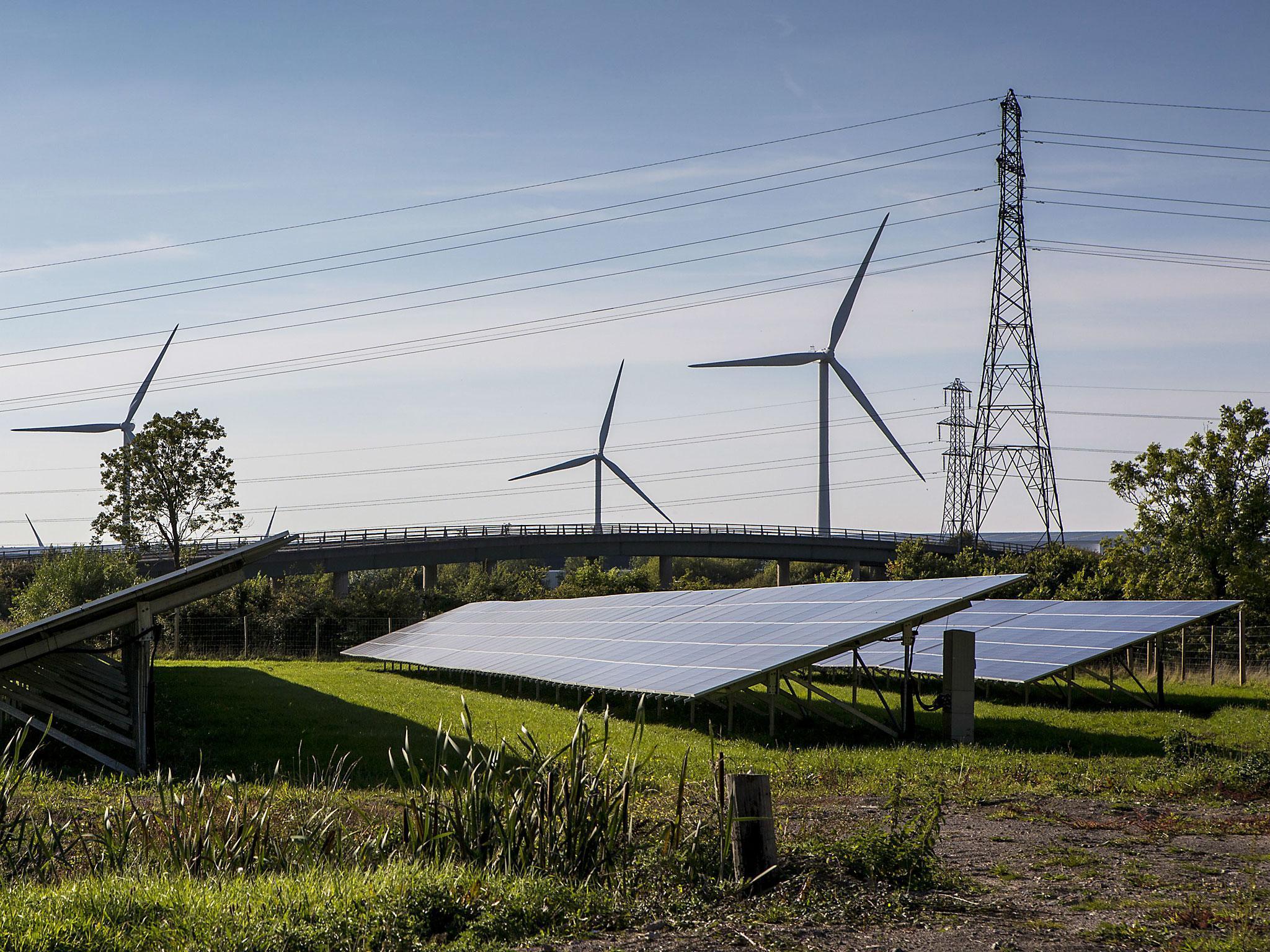Brexit sees UK drop to new low in global renewable energy league table
The Government’s decisions to scrap the Department for Energy and Climate Change and approve a new nuclear power station at Hinkley Point also hit investor confidence in green energy

Your support helps us to tell the story
From reproductive rights to climate change to Big Tech, The Independent is on the ground when the story is developing. Whether it's investigating the financials of Elon Musk's pro-Trump PAC or producing our latest documentary, 'The A Word', which shines a light on the American women fighting for reproductive rights, we know how important it is to parse out the facts from the messaging.
At such a critical moment in US history, we need reporters on the ground. Your donation allows us to keep sending journalists to speak to both sides of the story.
The Independent is trusted by Americans across the entire political spectrum. And unlike many other quality news outlets, we choose not to lock Americans out of our reporting and analysis with paywalls. We believe quality journalism should be available to everyone, paid for by those who can afford it.
Your support makes all the difference.The UK has fallen to its lowest position on an international league table of the best countries to invest in renewable energy following Brexit and Theresa May’s decision to scrap the Energy and Climate Change Department.
Analysts EY, part of financial giant Ernst & Young Global, put Britain, normally a regular in the top 10, in 14th place on the Renewable Energy Country Attractiveness Index, just behind Morocco.
The UK energy industry has complained that numerous and sudden changes in Government policy are putting off potential investors in any kind of electricity generation, threatening what could be a “golden age” of cheap and green power.
In a report, EY said: “Uncertainty caused by Brexit, the closure of the Department of Energy & Climate Change and the approval of [nuclear power plant] Hinkley Point C all dealt a sizeable blow to the UK renewables sector.
“Some respite came when the Government approved 1.8GW Hornsea 2, which will be the world’s largest offshore wind farm if completed as planned.”
The league table was led by the US, followed by China in second, then India, Chile and Germany.
However EY suggested a Republican victory in next month’s US election could change that.
“Donald Trump has a poor record on climate change, which he has frequently dismissed as a ‘hoax’, and threatens to pick apart the Paris climate accord should he be elected,” the report said.
The rest of the top 10 were Mexico, France, Brazil, South Africa and Canada.
EY’s head of energy corporate finance Ben Warren told industry news website Renews that UK Government policies were not inspiring confidence in investors.
“Continued uncertainty around the Government’s energy policy has created a confusing picture for investors seeking a low-risk return,” he said.
“With one more big decision, this time on the future of untested tidal lagoon technologies, expected in the coming months, the Government clearly believes that easy to deploy and cost efficient technologies such as onshore wind and solar are not the answer to the UK’s energy security conundrum.”
However he added there had been a significant increase in investment in battery storage in Britain.
“No doubt there are still challenges to be overcome and questions to be answered around affordability and availability,” Mr Warren said.
“But if the market is ready and willing to innovate, battery storage, coupled with renewables, can help improve reliability and consistency of output to create a far more attractive sector.”
Join our commenting forum
Join thought-provoking conversations, follow other Independent readers and see their replies
Comments